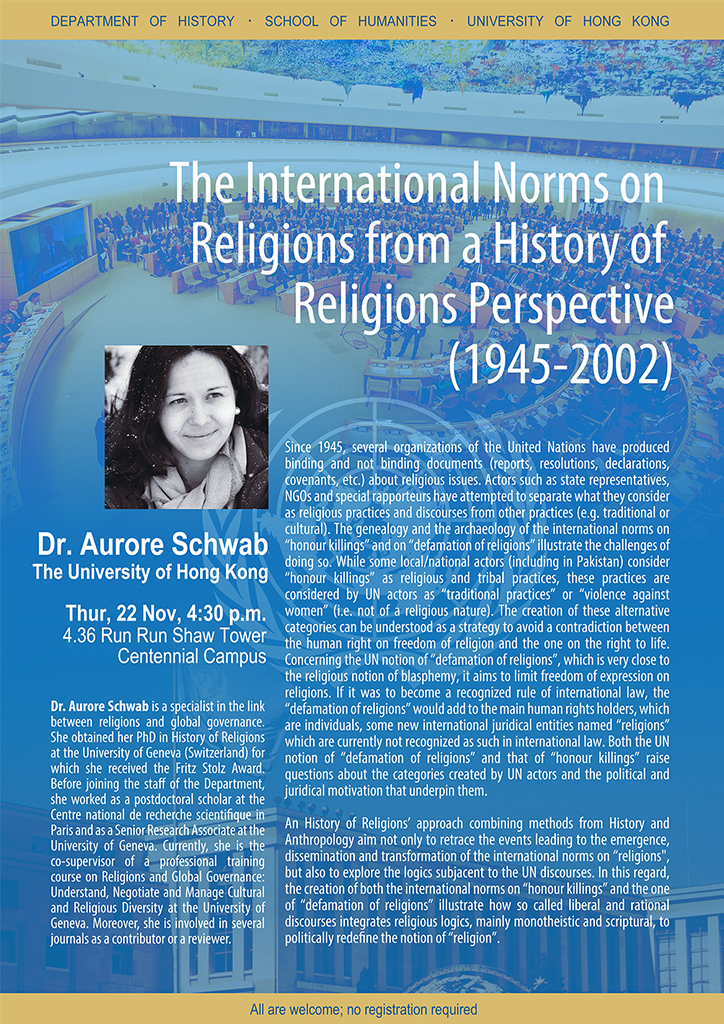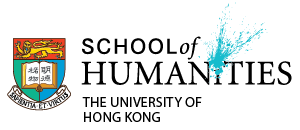
Department of History
Message from Department of History
The international norms on religions from a History of Religions perspective (1945-2002)
Speaker: Dr. Aurore Schwab
The University of Hong Kong
Since 1945, several organizations of the United Nations have produced binding and not binding documents (reports, resolutions, declarations, covenants, etc.) about religious issues. Actors such as state representatives, NGOs and special rapporteurs have attempted to separate what they consider as religious practices and discourses from other practices (e.g. traditional or cultural). The genealogy and the archaeology of the international norms on “honour killings” and on “defamation of religions” illustrate the challenges of doing so. While some local/national actors (including in Pakistan) consider “honour killings” as religious and tribal practices, these practices are considered by UN actors as “traditional practices” or “violence against women” (i.e. not of a religious nature). The creation of these alternative categories can be understood as a strategy to avoid a contradiction between the human right on freedom of religion and the one on the right to life. Concerning the UN notion of “defamation of religions”, which is very close to the religious notion of blasphemy, it aims to limit freedom of expression on religions. If it was to become a recognized rule of international law, the “defamation of religions” would add to the main human rights holders, which are individuals, some new international juridical entities named “religions” which are currently not recognized as such in international law. Both the UN notion of “defamation of religions” and that of “honour killings” raise questions about the categories created by UN actors and the political and juridical motivation that underpin them.
An History of Religions’ approach combining methods from History and Anthropology aim not only to retrace the events leading to the emergence, dissemination and transformation of the international norms on “religions”, but also to explore the logics subjacent to the UN discourses. In this regard, the creation of both the international norms on “honour killings” and the one of “defamation of religions” illustrate how so called liberal and rational discourses integrates religious logics, mainly monotheistic and scriptural, to politically redefine the notion of “religion”.
Dr. Aurore Schwab is a specialist in the link between religions and global governance. She obtained her PhD in History of Religions at the University of Geneva (Switzerland) for which she received the Fritz Stolz Award. Before joining the staff of the Department, she worked as a postdoctoral scholar at the Centre national de recherche scientifique in Paris and as a Senior Research Associate at the University of Geneva. Currently, she is the co-supervisor of a professional training course on Religions and Global Governance: Understand, Negotiate and Manage Cultural and Religious Diversity at the University of Geneva. Moreover, she is involved in several journals as a contributor or a reviewer.
All are welcome. No registration is required.
Date/Time: 22/11/2018 16:30 – 18:00
Venue: Room 4.36, Run Run Shaw Tower, Centennial Campus
Language: English
For further information, please visit: http://www.history.hku.hk/news_s18_schwab.html
